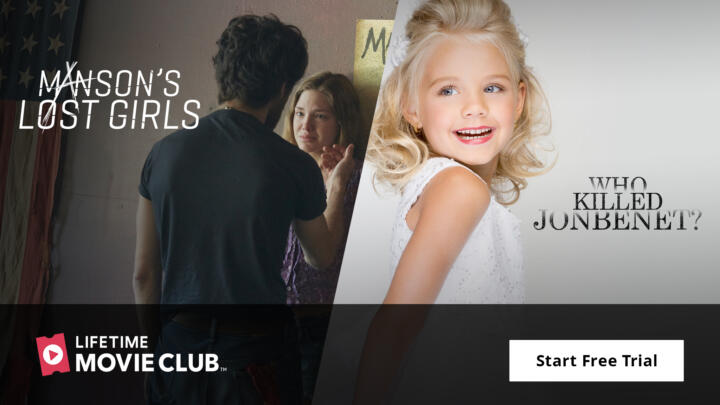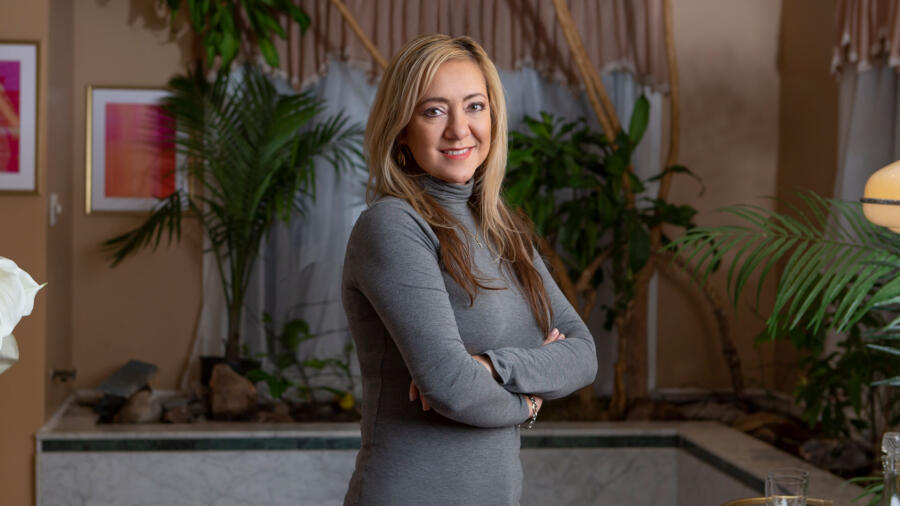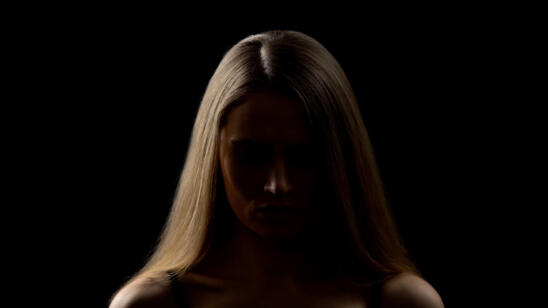For years, her name was treated as a shorthand joke: Lorena Bobbitt, the angry, crazy wife, a 22-year-old Ecuadorian immigrant who had cut off her husband John Wayne Bobbitt’s penis with a kitchen knife while he slept in their Northern Virginia home. The June 1993 incident served as international tabloid fodder for months.
Lorena’s allegations of domestic violence and sexual assault throughout the course of their marriage were often treated as an afterthought in the story’s telling. Her knife attack was the central detail. It became a subject in comedian Robin Williams’s standup routine. Meanwhile, John attained minor celebrity, appearing regularly on the radio with shock jock Howard Stern, who took a liking to him and used his platform to fundraise for him.
Both Lorena Bobbitt (who now goes by her maiden name Lorena Gallo) and John Wayne Bobbitt were eventually found not guilty in the courts: he of marital sexual assault, and she of malicious wounding (by reason of temporary insanity). John has also repeatedly denied that he abused Gallo during their marriage.
Since then, Gallo has picked up the pieces of her life. She founded the nonprofit Lorena Gallo Foundation, an organization devoted to fighting domestic abuse. She’s also sharing her story—in the feature movie I Was Lorena Bobbitt, which she executive produced and which premiered on Lifetime on May 25, 2020.
Gallo spoke with A&E True Crime about “the incident,” the high-profile trial and the work she’s done since.
What happened to you after your trial? How did you build yourself back up after all that trauma?
After the worst was over, I thought…it was going to be time to take care of myself—to take care of Lorena. And that obviously included [getting] psychological help, moral support from my family and friends. Also, I’m a woman of faith—God was there to me. All of that was at the core for me getting back on my feet again.
How did psychologists help you?
Basically, I told my story. One of the things I believe now is that you have to overcome [your trauma] when you are ready to tell your story. It might take one year, and it might take 10. But it’s when you are ready to tell the story. Then you are ready to be strong.
The more I tell my story, the more prepared I am to confront situations. And I do that when I go to work in shelters around my community. I hear stories from women, and they hear mine.
Let’s go back to the beginning. What do you initially like about John Wayne Bobbitt?
He was a very attractive man—he was handsome, he was confident, and he was nice. He was basically my first love.
And when did you first begin having doubts about the relationship?
When he punched me in the chest.
We were married at that point. We went out celebrating our first month as newlyweds [in July 1989], and we were coming back from a dinner that had turned bad. We were on the highway, and he was moving the car left and right and scaring other drivers. I got scared too… He was drunk driving. I grabbed the steering wheel of the car and he didn’t like that…and punched me in the chest. That was the first of many incidents.
[In 1992] I told him that I wanted to leave the marriage. But John told me he was a changed man, said he’d gone to see a priest… He basically played me with lies. He said he wouldn’t abuse me, and I believed him. I was in the wheel of domestic violence, with abused woman syndrome—when I tried to leave, I couldn’t. Because he hit me, he abused me and all those scary feelings would come back to me.
Did you ever develop a plan to leave?
No. [When] I told him that I wanted a divorce, he got very angry and told me that no matter where I go, he will find me. He threatened me with calling immigration.
I was terrified of him.
What do you remember of the knife attack? You went down to the kitchen, and then what happened?
I remember being in the kitchen…and I got a glass of water. Then nothing else—I don’t remember anything after that.
You were interrogated by law enforcement that night, and a lot of what you said in that interrogation was used against you in both the court of law as well as in the court of public opinion. How did that interrogation go for you?
It was very difficult to understand the detective. English is my second language, and I was never offered a translator. And I was never read my Miranda Rights.
I was very intimidated to talk to the detective: He was tall, a big man, he represented the law… I was shrinking and shrinking myself because I was asked questions in a very intimidating way. It was very scary, the whole process.
It went on and on, through the whole night. I believe it was more than 14 hours. I remember looking out the window and it was getting [brighter].
You were offered a plea deal of four months’ imprisonment. Did you ever seriously consider taking it?
No I did not. I wanted to tell the truth of what happened. I wanted to tell my own story. That was very important to me. I felt I was innocent, I felt this monster who did this to me—my abuser—had to be exposed.
Do you feel vindicated in that decision?
Absolutely. It put me in a better position to tell how victims of domestic violence are living this nightmare.
We are living a social epidemic in the middle of a pandemic. One out of three women in the United States is going to be victimized and seriously brutalized by an abuser in their lifetime.
And it’s very important to point out to the younger generations that there is help, that silence is not an option, and that there are a lot of more resources [now]. We have come a long way and have worked toward a judicial system that protects more women.
What kind of work does the Lorena Gallo Foundation do?
The Lorena Gallo Foundation’s mission is to raise awareness and prevent domestic violence and domestic assault through education and community engagement activities. I’m currently working on opening an emergency shelter to help people escape abusive relationships. We have a lot of people staying in abusive relationships because they have no place to go. And victims should always have a place to go.
Related Features:
Watch Clips and Learn More About ‘I Was Lorena Bobbitt’
What Happens When Abused Women Snap



